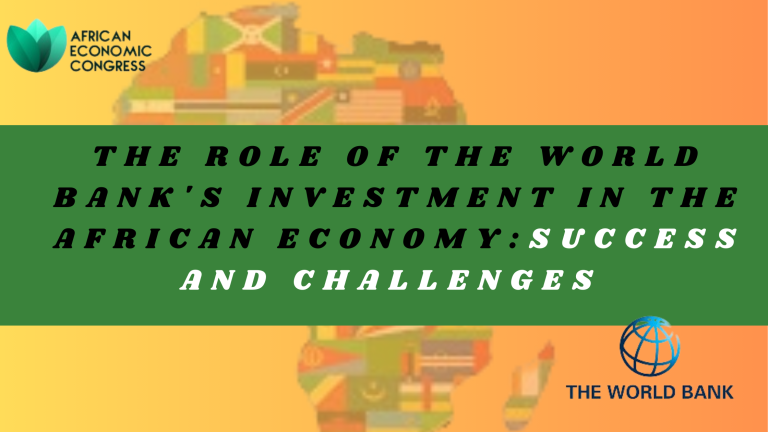The World Bank investment played a significant role in developing the African economy. World Bank helps African development through various interventions and initiatives, such as poverty alleviation programs, agricultural intervention and financial support. In this blog post, we will look at the various investments of the World Bank in African development and highlight its success and the obstacles encountered in the process.
The role of the World Bank in African development
World Bank plays a vital role in African development through various ways as shown below.
- Supporting Infrastructure Development: The World Bank helps in building various infrastructures in many African countries. It involves in building projects such as bridges, roads, schools and some financial institutions to enhance economic stability and improve the standard of living for Africans.
- Education and Health: The significant intervention of the World Bank in the education and health sector in Africa has efficiently enhanced the health and educational systems of various African countries. World Bank is efficiently investing in the health and educational systems of various African countries through the provision of facilities, human resources development and other related support.
- Agriculture Development: The World Bank is supporting agricultural sectors in Africa to improve food security. World Bank is supporting African Agriculture through various interventions such as financial support, provision of updated agricultural equipment and providing training to farmers.
- Rural Development: The role of World Bank intervention in developing rural areas in Africa plays a vital role in Enhancing the life standard of people in remote areas. World Bank help in improving education sectors, enhancing medical facilities and providing easy access to roads in many rural areas in Africa.
Successes of the World Bank’s Investment
- Infrastructure Improvements: The World Bank helps in developing various infrastructural projects in Africa, such as Addis Ababa-Djibouyi Raiways, and the Kano to Maradi Railway to promote trade and easier connectivity among African countries.
- Education and Health Advances: The World Bank’s investment in African education and health sectors counted several achievements,s such as reducing the number of out-of-school children, the mortality rate of women during giving birth, improving the standard of educational systems, combating some diseases such as malaria, HIV/AIDS and improving the health and educational facilities of many African countries.
- Agricultural Productivity: The World Bank’s interventions in Africana agriculture improved agricultural productivity in the continent through the provision of modern farming equipment and road access to agricultural areas.
Challenges of World Bank Investment in Africa
- Political Instability: The political system of Africa is still not stable which is also affecting the World Bank intervention in the region. World Bank is facing some challenges in their investment in Africa, such as the inability to maintain the project provided by the World Bank, and difficulty in maintaining and achieving long-term goals.
- Corruption: Corruption is the major enemy of African development that is affecting many sectors, including the World Bank’s intervention. In Africa, the World Bank’s investment is encountering many challenges such as looting of resources provided by the World Bank, mismanagement of funds and many more.
- Debt Burden: Most of the time, the World Bank is investing in the African economy through loans. This creates too much of a loan burden for many African countries. This increases the level of economic hardship in many African countries.
- Sustainability Issues: One of the significant challenges of World Bank intervention in Africa is sustaining the projects provided by the World Bank in the region. Without local ownership, capacity building, and long-term maintenance plans, many initiatives risk becoming unsustainable once external support is withdrawn.
- Economic Disparities: Despite significant investments in African countries, there is still a high level of economic inequality between urban and rural areas in the region. The World Bank project has a slight impact on rural areas.
The World Bank’s investment in the African economy has achieved significant successes, particularly in infrastructure, education, health, agriculture, and private sector development. However, challenges such as political instability, corruption, debt burden, sustainability issues, and economic disparities persist.
you can also read the below article for more information about The Influence of World Bank Policies on African Economic Reform

